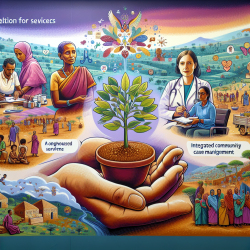As a speech-language pathologist (SLP) committed to data-driven decisions, it is essential to stay informed about research that can enhance our practice and outcomes for children. A recent study titled Primary school teachers’ opinions and attitudes towards stuttering in two South African urban education districts offers valuable insights that can guide our interventions and collaborations with educators.
Understanding Teachers' Attitudes
The study, conducted in two urban education districts in the Western Cape, South Africa, utilized the Public Opinion Survey of Human Attributes-Stuttering (POSHA-S) to gauge primary school teachers' attitudes towards stuttering. The findings revealed generally positive attitudes, particularly regarding the potential of people who stutter (PWS). However, misconceptions about the causes and personality stereotypes of stuttering were still prevalent.
Key Findings and Implications
- Over 50% of teachers believed that PWS were nervous or excitable, and shy or fearful.
- Teachers showed diverse beliefs about the causes of stuttering, with some attributing it to genetic inheritance and others to an act of God or frightening events.
- Most teachers (94.1%) believed that speech-language therapists should assist PWS, but 43.5% did not see themselves as appropriate helpers.
- Teachers reported feeling comfortable and relaxed when interacting with PWS and would try to act like the person was talking normally.
Strategies for Speech-Language Therapists
Given these findings, here are some strategies that SLPs can implement to improve outcomes for children who stutter:
- Education and Training: Develop professional development programs to educate teachers about stuttering, its causes, and effective classroom management strategies. Research shows that improved knowledge can lead to more positive attitudes.
- Collaborative Interventions: Work closely with teachers to create supportive classroom environments that reduce pressure on children who stutter, thereby promoting fluency.
- Use of Educational Materials: Implement educational materials such as documentary videos that depict factual and emotional aspects of stuttering to positively change attitudes.
- Addressing Misconceptions: Focus on correcting misconceptions about stuttering, particularly regarding its causes and personality stereotypes, to foster a more supportive attitude among teachers.
Encouraging Further Research
While this study provides a valuable foundation, further research is needed to explore teachers' attitudes in different contexts, such as rural areas, and to understand the underlying reasons behind these attitudes. Qualitative studies could offer deeper insights that can inform more tailored intervention strategies.
By integrating these research findings into our practice, we can better support teachers and create more inclusive and effective learning environments for children who stutter.
To read the original research paper, please follow this link: Primary school teachers’ opinions and attitudes towards stuttering in two South African urban education districts.










